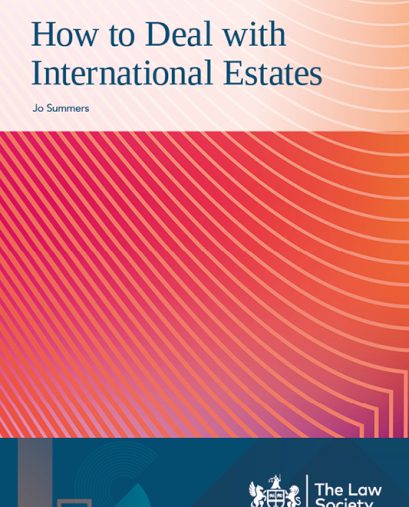Coronavirus and Force Majeure

Who bears the loss for cancelled events, due to either mandatory travel bans or voluntary decisions by venues and other organisations not to hold public gatherings and meetings, because of the risks of possible transmission of the Coronavirus?
The global spread of the virus is continuing and causing serious disruption to trade and travel. On 30 January the World Health Organization (WHO) declared a Public Health Emergency of International Concern (PHEIC) for the current outbreak of Coronavirus disease, COVID-19.
The US Center for Disease Control and Prevention announced on 25th February that they ultimately expect Coronavirus to spread in the United States and are urging local governments, businesses, and schools to develop plans like cancelling mass gatherings or switching to teleworking.
A critical legal issue when considering the application of the force majeure provisions is …is the cause of delay contagious disease, or is it subsequent circumstances as society responds such as supervening legislation passed by national legislatures and public health authorities intended to limit the economic impact of the virus, and which (if either) of these is within the scope of the clause?
Generally, if a force majeure event occurs, performance of certain obligations within the contract will be suspended for a specified period of time (for example, until the Coronavirus outbreak is contained or its consequences on the contract parties come to an end). In some cases, a suspension of obligations may not be viable and either you or your counter-parties may seek to terminate the contract entirely.
The purpose of a force majeure clause is usually to provide for the termination or adaption of a contract if supervening events affect its performance.
Force majeure clauses that are widely worded will not necessarily capture events such as the Coronavirus outbreak. The party relying on the clause will still likely need to prove that the force majeure event was not “reasonably contemplated” by the parties when making the contract, and that the event is “beyond the reasonable control” of the party seeking relief.
Most force majeure provisions are unlikely to list disease, epidemics, or quarantine specifically, many including the ones here include such things as natural disasters, “acts of God,” acts of government, or “other circumstances beyond the parties’ control.” The Coronavirus outbreak presents a somewhat unique situation in that it includes both a naturally occurring component (the virus itself) and a government action component (including the quarantines and other measures put in place in response to the outbreak). It is therefore unfortunately not clear that the force majeure clauses would operate to discharge all parties from all obligations in the current circumstances.
Most commercial contracts which are disrupted have been concluded prior to the Coronavirus outbreaks concluded, none of the force majeure clauses explicitly refer to the event of a Coronavirus outbreak. This does not exclude the possibility that they could be construed to do so. In order to rely on the clause, consideration will be given to the all other events included, such as well as actions by government agencies, or work stoppages.
If the impact of the Coronavirus outbreak is outside its scope, you may need to consider whether the contract has been terminated by operation of law on any other basis, such as upon acceptance of a renunciation or “frustration”. The doctrine of frustration applies where events occur that result in a situation fundamentally or radically different from what was in the contemplation of the parties when the contract was made. The doctrine of frustration is rarely available in practice and is unlikely to apply where performance is merely delayed because courts typically require the parties to demonstrate something akin to “impossibility” of performance in order to find that frustration has occurred.
Under English law no doctrine of force majeure will apply outside of the contractual mechanism. Force majeure is not implied as a matter of law, and such express clauses are interpreted strictly. A court would undertake an analysis of which risks it was agreed would be borne by which party, requiring careful consideration of the precise wording in the particular agreement. Force majeure clauses that are widely worded will not necessarily capture events such as the Coronavirus outbreak. The party relying on the clause will still likely need to prove that the force majeure event was not “reasonably contemplated” by the parties when making the contract, and that the event is “beyond the reasonable control” of the party seeking relief.
In a further development, at the end of January the China Council for the Promotion of International Trade confirmed that China would offer force majeure certificates to local companies which were not able to fulfill contractual obligations because of the outbreak of Coronavirus as a means of evidencing their inability to perform the contract. However, in an international context, while a certificate may lend weight to the suggestion that a contract cannot be performed, unless an English law contract contains a specific force majeure clause excusing performance which is drafted widely enough to cover the circumstances which are stopping the party performing the contract, a certificate is unlikely to mean much.
If you would like advice about incorporation of appropriate force majeure clauses in your contracts or are facing disruption and think that force majeure may be applicable to your situation please speak to your usual Jurit contact or Robert.
Robert Marcus Partner - Commercial +44 (0) 20 7846 2370 robert.marcus@jurit.comPlease note this paper is intended to provide general information and knowledge about legal developments and topics which may be of interest to readers. It is not a comprehensive analysis of law nor does it provide specific legal advice. Advice on the specific circumstances of a matter should be sought.









